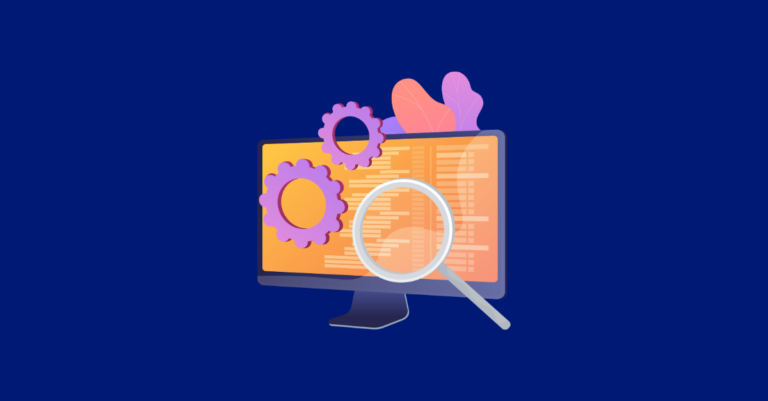10 AI Use Case Ideas From Our Marketing Agency’s SEO Team
Artificial intelligence is changing the SEO landscape — and at Greenlane Search Marketing, our team is embracing AI whenever we can.
But rather than relying on AI to replace our irreplaceable human expertise, we use it as a tool for streamlining research, optimizing content, and initiating strategies.
Below, we explore the key ways our SEO team is leveraging AI.
Enhancing Research & Data Analysis
AI is proving to be a powerful assistant in the research phase of SEO. Several of our SEO team members leverage it for use cases related to gathering, organizing, and analyzing data efficiently:
1. Keyword Research
Keyword research is one of the most fundamental aspects of SEO, and AI is helping us make this process faster and more strategic. AI can generate an initial set of keywords based on a broad topic, allowing us to explore long-tail opportunities and niche queries more efficiently.
“AI helps me in my keyword research phase,” Malcolm, our SEO Associate, shares, “It can help me curate unique keyword lists I cross-reference with our SEO tools to find low-competition opportunities.”
AI also helps us predict emerging trends by analyzing search patterns and audience behaviors, ensuring we stay ahead of the competition.
2. Competitive Analysis
Speaking of competition, understanding our client’s competitive landscape is crucial for all our SEO strategies. AI allows us to quickly compile a list of competitors based on shared product or service offerings and categorize them according to relevance.
“AI can quickly gather a list of competitors and then help me narrow or categorize it based on the different products or services those websites offer,” Adam, our Senior AM, shares. This automated portion of a competitor analysis helps us focus on direct competitors and their successful strategies, giving us valuable insights into how we can differentiate our content and offerings.
3. Customer Research
Artificial intelligence is also playing a critical role in our customer research. By analyzing customer pain points, sentiment, and queries, AI proves itself an important use case for bettering tailoring our SEO and content strategies to meet audience needs. Malcolm also uses AI during customer research, stating that it helps “define pain points.” AI-powered insights allow us to create content that resonates more effectively with potential customers, improving engagement and conversion rates.
4. Data Visualization
Communicating SEO performance effectively requires clear, insightful reporting. AI assists in creating custom charts and filters in Looker Studio, allowing us to better visualize trends and key performance indicators.
Baileigh, one of our Senior AMs, shares, “I’m using AI to help create custom charts & filters in Looker Studio to better represent results from our SEO efforts.” These visualizations make it easier for our clients to understand complex data and see the impact of our strategies at a glance.
Streamlining Content Ideation & Optimization
Content remains a cornerstone of SEO, and AI is helping our team brainstorm, analyze, and refine content more effectively:
5. Topic Ideation & Outlining
AI is an excellent tool for generating new content ideas and structuring outlines, especially in industries where we need to quickly familiarize ourselves with specialized topics. It provides a high-level overview of relevant themes and subtopics, acting as a brainstorming partner for initial ideation.
“ChatGPT is a great resource for quickly suggesting areas of focus for various industries I might not be familiar with for client writing,” I explain in our LinkedIn video, “The issue is, it can be a great starting point, but I think of it more for jumping off rather than completing projects.” For example, let’s look at the writing use case of AI-generated article outlines. AI can give us a list of possible topics or a skeleton of how to structure a blog post, but we always need human input and expertise to actually write content that furthers our client’s goals.
6. Content Optimization
AI enhances our ability to analyze top-ranking content in any given niche, providing insights into keyword usage, ideal content length, and critical subtopics.
“AI is a powerful tool for content analysis and optimization,” Bill, one of our Founding Partners, highlights, “especially during the SEO writing process. It can break down competitors’ top-ranking pages for a given keyword or topic, identifying key subtopics, keyword usage, and the ideal content length needed to align with search intent.” By leveraging this information, we ensure our content remains competitive without resorting to duplication.
7. Topical Gap Analysis
One of the most effective use cases for AI that our marketing team actively relies on is for gap analysis — or rather, identifying missing topics or underdeveloped areas in our content compared to competitors. AI can review multiple articles at once and highlight areas where additional insights or details could be added.
Bill also notes, “By feeding it multiple articles, you can ask AI to highlight gaps in your copy, ensuring your content is more comprehensive and competitive.” This ensures our content is not only optimized for search engines but also provides real value to readers.
8. Summarization & Data Processing
When clients provide extensive industry documentation, AI helps us distill the key takeaways, making it easier to extract insights for content creation. Rather than manually combing through pages of material, we can use AI to consolidate the most important points and identify focus areas.
I personally also find AI useful as a summation tool. If a client sends over many lengthy documents of information about their industry or service/product, AI can help to crunch that data and consolidate it into the must-know information for me to ‘Command F’ and find focus areas to dig deeper. This helps us work more efficiently while ensuring accuracy and relevance.
Improving Workflow Efficiency
Beyond SEO-specific tasks, AI is helping our team work smarter by automating and speeding up otherwise repetitive processes:
9. Meeting Notes & Transcriptions
AI-powered transcription tools allow us to focus on meaningful client discussions without worrying about missing important details. Automated note-taking ensures we can capture key insights from meetings and follow up effectively.
“AI has been super helpful for taking notes during client meetings to help me focus more on the conversation and getting more in-depth with my questions,” our SEO Team Lead, Dylan, weighs in. This leads to better client relationships and more actionable insights from discussions.
10. Information Consolidation
With the sheer volume of data we deal with daily, AI plays an important role in streamlining information processing. Whether it’s scanning reports, summarizing articles, or extracting trends from analytics, AI helps us quickly pinpoint what matters most.
By leveraging AI for information consolidation, we reduce time spent on manual data review and focus more on high-value strategic work.
The Greenlane Approach: AI as a Tool, Not a Replacement
While AI is a powerful resource, our marketing team sees it as a complement to, not a substitute for, human expertise.
For our SEO department, artificial intelligence accelerates research, enhances content strategy, and improves efficiency, but ultimately, our strategic thinking and experience drive the best ranking outcomes. By combining AI’s capabilities with our deep industry knowledge, we continue to deliver data-driven, high-quality SEO strategies tailored to our clients’ needs.
As AI continues to evolve, we’re committed to exploring new ways to integrate it into our processes — always with a focus on maintaining the creativity, strategy, and personalization that make SEO truly effective.
Be sure to follow our blog for more marketing tips like these.







